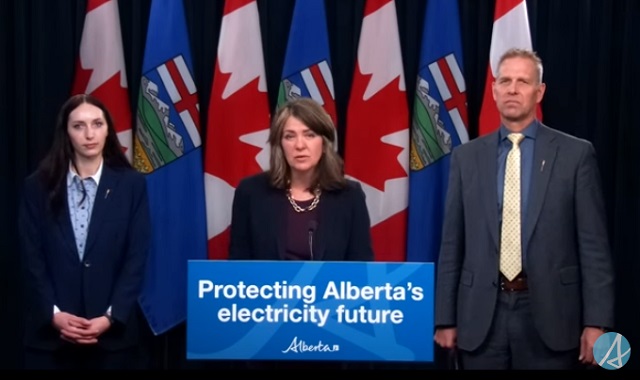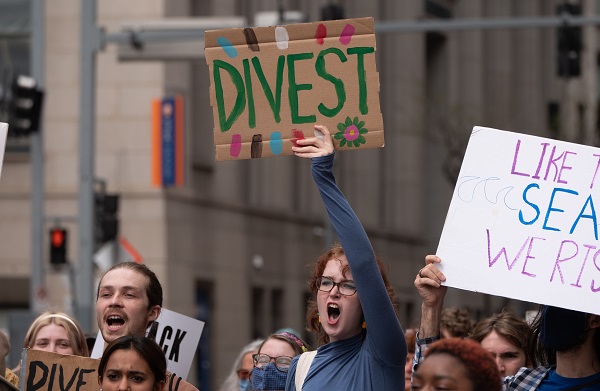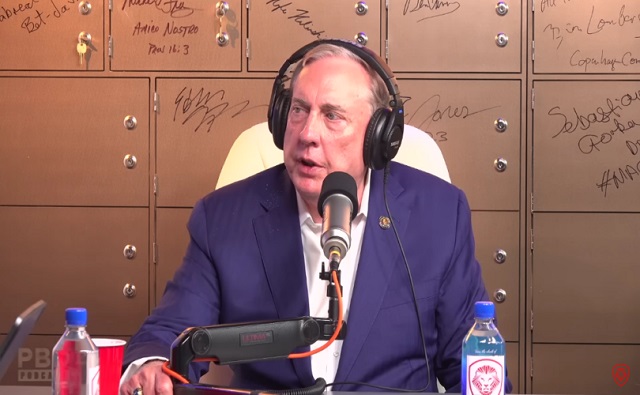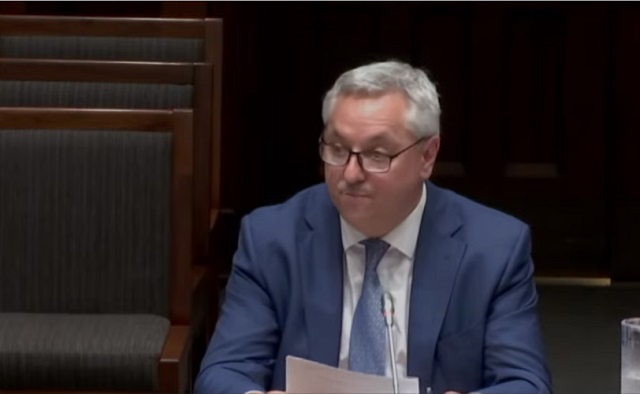Alberta
Honouring Canada’s Military History – Veteran’s Week

“November 5-11 is Veteran’s Week, honoring those who have served Canada, past and present, in times of war, military conflict, and peace.”
 Veteran’s Week is dedicated to promoting the education and understanding of Canadian military history, and preserving and honoring the memory of those men and women who dedicated themselves to protecting and fostering freedom and peace. This year, Veteran’s Week recognizes the 75th anniversary of the end of the Second World War, where more than one million Canadians served in the military and countless more on the home front, supplementing industry and agricultural efforts for the war.
Veteran’s Week is dedicated to promoting the education and understanding of Canadian military history, and preserving and honoring the memory of those men and women who dedicated themselves to protecting and fostering freedom and peace. This year, Veteran’s Week recognizes the 75th anniversary of the end of the Second World War, where more than one million Canadians served in the military and countless more on the home front, supplementing industry and agricultural efforts for the war.
“Veterans Affairs Canada encourages all Canadians to learn more about the sacrifices and achievements made by those who served our country, and to help preserve their legacy by passing the torch of Remembrance to future generations of Canadians.”
Veteran’s Week is a reminder to those of us who have experienced the violence and devastation of war only through textbooks or television to never take for granted the rights, freedoms and institutions we access on a daily basis in Canada. The men and women who selflessly stepped up to serve their country were mothers, fathers, sons, daughters, friends and loved ones whose lives would be forever changed by their service. Those who survived face lifelong battles of physical and mental trauma, and those who were lost, many of them young soldiers, would never return to enjoy the peace and liberty they had sacrificed everything to defend.
Every year, Veterans Affairs Canada encourages public engagement and participation in Veteran’s Week by sharing the stories of those who served, hosting public events and remembrance ceremonies, and commissioning commemorative Veteran’s Week posters.
“Veterans want Canadians to understand the price of freedom.” (1)
 One of this year’s Veteran’s Week posters features the story of retired Sergeant Norman Harold Kirby, who enlisted to serve in the Second World War in 1943 at just 17 years old. During his time as a soldier, he stormed Juno Beach on June 6, 1944 as a part of the D-Day assault, served in the Battle of Normandy, and fought in France, Belgium, Germany and the Netherlands. He was discharged in September of 1945 having led a distinguished military career, and was eventually awarded the Field-Marshal Montgomery Award for Gallantry and the Ordre National de la Légion d’honneur and a knighthood from the French Republic.
One of this year’s Veteran’s Week posters features the story of retired Sergeant Norman Harold Kirby, who enlisted to serve in the Second World War in 1943 at just 17 years old. During his time as a soldier, he stormed Juno Beach on June 6, 1944 as a part of the D-Day assault, served in the Battle of Normandy, and fought in France, Belgium, Germany and the Netherlands. He was discharged in September of 1945 having led a distinguished military career, and was eventually awarded the Field-Marshal Montgomery Award for Gallantry and the Ordre National de la Légion d’honneur and a knighthood from the French Republic.
After his discharge in 1945 he returned to his home in North Vancouver, still very much a young man. “I was only 19 years old when I got home,” he says, “not even old enough to vote or have a beer with my father” (2).
 The second 2020 Veteran’s Week poster features the retired, married veterans Corporal Anne McNamara and Flying Officer Howard McNamara.
The second 2020 Veteran’s Week poster features the retired, married veterans Corporal Anne McNamara and Flying Officer Howard McNamara.
Howard enlisted in December 1941 and graduated senior flying training in Windsor Mills, Quebec, with his younger brother. He flew in the North African Campaign in 1942, after which he transferred from Egypt to serve in the Italian Campaign. He retired in March of 1945 at the plea of his remaining family, after learning of the death of his younger brother, who had been shot down while flying over Europe.
Anne joined the Royal Canadian Air Force in 1943 as a member of the Entertainment Unit, a traveling show of 30 or so people who performed on the Allied bases almost every night to keep spirits and morale among soldiers high. Anne traveled across North America and to Great Britain with the Entertainment Unit, where she witnessed the severe damage done by German bombing raids and experienced the fear of the air raid sirens herself. She retired in March of 1946 following the end of the war, after which she met her future husband Howard. The two were married in May of 1948, and currently reside in St. Laurent, Quebec (3).
“Remembering and reflecting on the significance of the contribution they made, and continue to make, strengthens the commitment to preserve the values that they fought and died for – truth, justice, peace, freedom and knowledge.” (4)
These stories offer just a glance into the lived experiences of thousands of Canadian veterans who aided military and industry efforts during some of the darkest times in our national and global history. This Veteran’s Week, explore opportunities to engage with Canadian military history at the local and national levels, and pay respect to our Canadian veterans and active service members as we approach Remembrance Day on November 11.
For more information on Veteran’s Week, visit https://www.veterans.gc.ca/eng/remembrance/get-involved/veterans-week.
Alberta
Alberta’s baby name superstar steals the show again

Olivia and Noah continue to reign as top baby names in 2023.

Olivia and Noah are once again topping the lists in Alberta, highlighting the enduring appeal of the names. Olivia maintains a record setting streak as the most popular girls name in Alberta for the 11th year in a row, while Noah remains top pick for boys’ names for a fifth consecutive year.
“Congratulations to those who welcomed a new addition to their family in 2023. Bringing a child into the world is a truly momentous occasion. Whether the name you chose was in the top 10 or one of a kind, these names are only the beginning of the endless possibilities that lie ahead for each child. I look forward to supporting this generation by ensuring Alberta remains a place where they can thrive.”
In choosing names for their new arrivals, parents appear to have found inspiration in a variety of places. Some parents may have been inspired by plants like Ivy, Rose, Juniper, Poppy, Azalea or in nature like Wren, River, Meadow and Flora.
Others may have taken a literary approach with names like Bennett, Sawyer, Juliet and Atticus or been inspired by notable names from religious texts like Eve, Noah, Mohammed and Gabriel.
As always, popular culture may have had an influence through famous musicians (Aretha, Lennon, Presley, Hendrix), athletes (Beckham, Crosby, Evander), and even fairytale princesses (Tiana, Jasmine, Aurora, Ariel, Belle).
Quick facts
- A total of 47,263 births were registered in Alberta in 2023
- Notable changes to the early 2020s lists:
- Evelyn rose to seventh place on the girls’ names list after tying for 19th place in 2022.
- Emily returned to the top 10 list for girls after taking a short break in 2021 and 2022 after a 10-year stretch in the top 10 that started in 2010.
- Violet has cracked the top 10 list for the first time in at least four decades, tying with Ava and Emily in ninth place.
- The top 10 boys’ names remain the same as last year but with a slight change in order.
- Historically, girls’ names that held the No. 1 spot for the longest consecutive time period include:
- Olivia: 11 years (2013-2023)
- Jessica: six years (1990-1995)
- Emily: five years (1998-2002)
- Historically, boys’ names that held the No. 1 spot for the longest consecutive time period include:
- Ethan: nine years (2001-2009)
- Liam: seven years (2010-2016)
- Matthew: five years (1995-1999)
- Noah: five years (2019-2023)
- Parents have up to one year to register their child’s birth. As a result, the list of 2023 baby names and birth statistics may change slightly.
Boys’ names and frequency – top 10 names 2018-23
(In brackets is the number of babies with each name)
| Place | Boy Names (2023) | Boy Names
(2022) |
Boy Names (2021) | Boy Names (2020) | Boy Names (2019) | Boy Names (2018) |
| 1 | Noah (276) | Noah (229) | Noah (274) | Noah (239) | Noah (275) | Liam (225) |
| 2 | Liam (181) | Liam (176) | Jack (220) | Oliver (229) | Liam (234) | Oliver (212) |
| 3 | Oliver (178) | Theodore (173) | Oliver (208) | Liam (206) | Oliver (225) | Noah (199) |
| 4 | Theodore (173) | Oliver (172) | Liam (198) | Benjamin (182) | Ethan (213) | Ethan (188) |
| 5 | Jack (153) | Jack (159) | Theodore (191) | William (178) | Jack (198) | Logan (182)
Lucas (182) |
| 6 | Henry (146) | William (146) | William (174) | Jack (169) | William (185) | Jacob (181) |
| 7 | Lucas (140) | Benjamin (138) | Ethan (162) | Lucas (163) | Lucas (174) | William (178) |
Girls’ names and frequency – top 10 names 2018-2023
(In brackets is the number of babies with each name)
| Place | Girl Names (2023) | Girl Names
(2022) |
Girl Names (2021) | Girl Names (2020) | Girl Names (2019) | Girl Names (2018) |
| 1 | Olivia (210) | Olivia (192) | Olivia (210) | Olivia (236) | Olivia (229) | Olivia (235) |
| 2 | Amelia (145) | Sophia (152) | Charlotte (166) | Emma (184) | Charlotte (188) | Emma (230) |
| 3 | Sophia
(138) |
Emma (149) | Ava (165) | Charlotte (161) | Sophia (181) | Charlotte (175) |
| 4 | Charlotte
(135) |
Amelia (133) | Emma (164) | Ava (159) | Emma (178) | Emily (164) |
| 5 | Emma (133) | Harper (125) | Amelia (161) | Sophia (151) | Ava (161) | Ava (161) |
| 6 | Isla (120) | Charlotte (117) | Sophia (137) | Amelia (145) | Amelia (159) | Abigail (153) |
| 7 | Evelyn (114) | Ava (115) | Isla (135) | Isla (133) | Emily (150) | Harper (150) |
| 8 | Chloe (101)
Violet (101) |
Isla (101) | Abigail (120)
Chloe (120) |
Emily (127) | Abigail (141) | Sophia (146) |
| 9 | Ava (99) Emily (99) |
Lily (100) | Evelyn (119) | Lily (123) | Hannah (137) | Amelia (145) |
| 10 | Hannah (98)
Hazel (98) |
Chloe (92) | Aria (112) | Abigail (114) | Elizabeth (124) | Elizabeth (130) |
Related information
Alberta
Alberta government should create flat 8% personal and business income tax rate in Alberta

From the Fraser Institute
By Tegan Hill
If the Smith government reversed the 2015 personal income tax rate increases and instituted a flat 8 per cent tax rate, it would help restore Alberta’s position as one of the lowest tax jurisdictions in North America
Over the past decade, Alberta has gone from one of the most competitive tax jurisdictions in North America to one of the least competitive. And while the Smith government has promised to create a new 8 per cent tax bracket on personal income below $60,000, it simply isn’t enough to restore Alberta’s tax competitiveness. Instead, the government should institute a flat 8 per cent personal and business income tax rate.
Back in 2014, Alberta had a single 10 per cent personal and business income tax rate. As a result, it had the lowest top combined (federal and provincial/state) personal income tax rate and business income tax rate in North America. This was a powerful advantage that made Alberta an attractive place to start a business, work and invest.
In 2015, however, the provincial NDP government replaced the single personal income tax rate of 10 percent with a five-bracket system including a top rate of 15 per cent, so today Alberta has the 10th-highest personal income tax rate in North America. The government also increased Alberta’s 10 per cent business income tax rate to 12 per cent (although in 2019 the Kenney government began reducing the rate to today’s 8 per cent).
If the Smith government reversed the 2015 personal income tax rate increases and instituted a flat 8 per cent tax rate, it would help restore Alberta’s position as one of the lowest tax jurisdictions in North America, all while saving Alberta taxpayers $1,573 (on average) annually.
And a truly integrated flat tax system would not only apply a uniform tax 8 per cent rate to all sources of income (including personal and business), it would eliminate tax credits, deductions and exemptions, which reduce the cost of investments in certain areas, increasing the relative cost of investment in others. As a result, resources may go to areas where they are not most productive, leading to a less efficient allocation of resources than if these tax incentives did not exist.
Put differently, tax incentives can artificially change the relative attractiveness of goods and services leading to sub-optimal allocation. A flat tax system would not only improve tax efficiency by reducing these tax-based economic distortions, it would also reduce administration costs (expenses incurred by governments due to tax collection and enforcement regulations) and compliance costs (expenses incurred by individuals and businesses to comply with tax regulations).
Finally, a flat tax system would also help avoid negative incentives that come with a progressive marginal tax system. Currently, Albertans are taxed at higher rates as their income increases, which can discourage additional work, savings and investment. A flat tax system would maintain “progressivity” as the proportion of taxes paid would still increase with income, but minimize the disincentive to work more and earn more (increasing savings and investment) because Albertans would face the same tax rate regardless of how their income increases. In sum, flat tax systems encourage stronger economic growth, higher tax revenues and a more robust economy.
To stimulate strong economic growth and leave more money in the pockets of Albertans, the Smith government should go beyond its current commitment to create a new tax bracket on income under $60,000 and institute a flat 8 per cent personal and business income tax rate.
Author:
-

 International2 days ago
International2 days agoUN attacks stay-at-home motherhood as ‘gender inequality’
-

 Censorship Industrial Complex22 hours ago
Censorship Industrial Complex22 hours agoDesperate Liberals move to stop MPs from calling Trudeau ‘corrupt’
-

 COVID-192 days ago
COVID-192 days agoWHO Official Admits the Truth About Passports
-

 Alberta2 days ago
Alberta2 days agoProvince to stop municipalities overcharging on utility bills
-

 Energy2 days ago
Energy2 days agoAnti-LNG activists have decided that they now actually care for LNG investors after years of calling to divest
-

 Brownstone Institute2 days ago
Brownstone Institute2 days agoA Coup Without Firing a Shot
-

 conflict1 day ago
conflict1 day agoCol. Douglas Macgregor: US is ‘facing disaster’ as it funds overseas wars while bankrupt
-

 Alberta1 day ago
Alberta1 day agoAlberta government should create flat 8% personal and business income tax rate in Alberta










